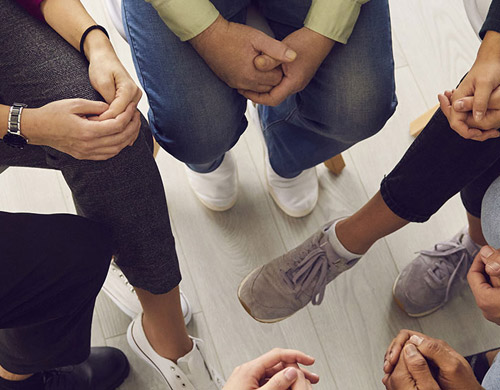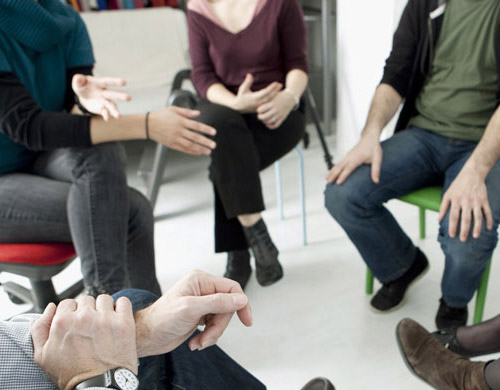Alcohol and drug dependencies introduce challenges when you or someone you love experiences them. Fortunately long term sobriety can be achieved if you utilize proven rehabilitation methods because addiction is a treatable illness.
Read more on how holistic rehabilitation services can help you or someone you love in starting and maintaining a sober future.
What is Addiction Rehab (Rehabilitation)?
Addiction ‘rehabilitation’ is the process of medical treatment and counseling to address your dependence on substances such as illegal drugs, prescription medications and alcohol. Addiction Rehab is more effective when it is tailored to your individual needs involving a medical detox, residential and outpatient services, as well as relapse prevention techniques.

Facts & Statistics about Addiction in Jurupa Valley
Prevalence of Substance Use Disorder, by Drug Type
(IN THOUSANDS)
- 2,7578.5%Any Substance
- 2,0886.4%Alcohol
- 1,0683.3%Ilicit Drugs
- 2060.6%Pain Medication
Drug- and Alcohol-Induced Deaths by Age Group, California, 2016
- Alcohol-Induced
- Drug-Induced
- 18 to 250.5
- 9.6
- 26 to 354.3
- 13.9
- 36 to 6424.2
- 22.9
- 65+23.7
- 9.4
Drug Use, by Selected Type and Age Group California, 2015 to 2016
- 12 to 17
- 18 to 25
- 26+
- Marijuana*13.2%
- 34.0%
- 13.5%
- Misuse of Pain Medications3.5%
- 8.0%
- 4.3%
- Cocaine0.8%
- 7.2%
- 1.8%
- Heroin0%
- 0.4%
- 0.2%
What are the treatment options available in Jurupa Valley?
An integrated solution is considered the most effective way to tackle and heal the underlying causes of substance use disorders and alcoholism. While treating the causes of dependence is crucial, you also need to learn coping skills to address the issues that lead to your drug or alcohol dependence.

Private Residential Programs
Remaining at a rehab center and undergoing all of your treatments there is called being in a residential rehab program. Having Access to round-the-clock support and treatment is one of the key benefits. If you leave your home and move into a treatment center, you can remove yourself from exposure to triggers that would have influenced your decision to abuse substances or alcohol.
If you reside in a safe and secure environment you can protect yourself from relapse and increase the odds of finishing your treatment program.
Residential treatment programs are considered most effective if your substance dependency is chronic and complex in nature, or if you struggle with co-occurring illnesses or have a dual diagnosis. Enrolling in a residential treatment program is the most effective way to treat addiction, and maintaining it requires ongoing focus because maintaining recovery is a challenge during the early stages. Completing your residential rehab program is the beginning of your newfound independence and you must focus on setting goals for your substance-free future.
Do You Need Help?
Our admissions team is ready to answer your questions.

Sober Living Programs
Sober living treatment programs help you to have more control over your life, with guidance and supportive structures. These programs incorporate:
- A house manager to check in with you on a daily basis
- Work on guidelines for positive behaviors in recovery
- Friendship, companionship and support from those who are having similar challenges to you.
Outpatient Programs
Outpatient rehabilitation programs are considered to be flexible because they allow you to have treatment at the treatment facility while you maintain important work or life commitments.
Outpatient programs teach you:
- Education about substance misuse
- Counseling and talking therapies through the use of group interventions and individual sessions with a skilled addiction specialist. – Outpatient programs should run from three months to over a year, and your individual needs will determine how long you should attend treatment.
Detox Only Programs
Most clients will need a medical detox to begin drug rehab, as it addresses physical dependencies on substances by removing it from your system. As your body becomes accustomed to not having the substance it was dependent on, withdrawal symptoms typically occur.
Once you tackle the difficult phase of physical withdrawal you will enter the second part of your rehab journey, working through the underlying causes of your dependency to put a stop to the cycle . It is normal to undergo withdrawal and cravings for a few weeks after the substance has been eradicated from your body. Your odds of relapse can be mitigated as you build on the important skills necessary for long-term abstinence.
Paying for Private Treatment
Private rehab will need to be paid out of pocket or claimed from your insurance provider. A large number of health insurance providers usually cover at least some of your rehab treatment, such as detox, therapy and counseling, medication and relapse support.
The amount covered for your treatment will be contingent on your provider and policy. We recommend that you double check on the amount covered for treatment prior to enrolling for treatment. You can visit our Verify Your Insurance page for more details on the cover that is available to you.
If you do not claim from your insurance provider you must pay upfront for your rehab treatment. Some rehab centers may offer payment plans when clients find the costs unaffordable upfront.
State Funded Programs
If you want to overcome your substance or alcohol addiction but due to limited resources cannot pay for private rehab, you should consider a state-funded rehabilitation program. These programs operate via Medicaid and state/federal budgets to support recovery through:
- Services for a safe detox (medically-assisted if required.
- Rehab programs and extended support services
State-funded rehab programs are important to those who have no private health insurance or who reside in low income households. During the application process you will need:
- Evidence that you are a resident of the US
- Proof of income
- Proof of living arrangements
- Medical details about your drug or alcohol addiction issues
You can learn more about how to apply by visiting here
This pdf document provides contact details for your state agency.

The following state-funded addiction rehab programs are available in Jurupa Valley:
Sierra by the Sea Sunrise Recovery Ranch
6798 Limonite Frontage Road, Jurupa Valley, CA 92509
949-675-9033
https://www.sierrabythesea.com/Sunrise Ranch
6690 Limonite Frontage Road, Jurupa Valley, CA 92509
949-675-9033
https://www.sunriserecoveryranch.com/Sierra by the Sea
2800 Lafayette Road, Suite D , Newport Beach, CA 92663
949-675-9033
https://www.sierrabythesea.com/
Maintaining Addiction Recovery in Jurupa Valley
You may notice some initial challenges in the early stages of recovery. When you were in rehab the environment was controlled and you had support from professionals.
After leaving the rehab center you may encounter unanticipated challenges that you are not prepared for. If you experienced a severe dependency and have not developed a social structure to return to when you leave rehab, you may find long term recovery more of a challenge. Relapse can happen if you don’t have the appropriate aftercare or support to guide you into your new future.
The following AA/NA meetings are available in Jurupa Valley:
Lutheran Church
Open and Wheelchair Access: Jurupa Ave & Brockton Ave., Riverside, CA 92506
Tuesday: 11:24 AM
https://sober.com/AA - Jurupa Valley Alcoholics Anonymous Meeting
Open: 9010 Limonite Avenue, Riverside, CA 92501
Thursday: 7:45 pm – 8:45 pm
https://alcoholicsanonymous.com/AA - Riverside - Pacific Grove Hospital
Open: 5900 Brockton Ave., Riverside, CA 92506
Sunday: 6:00 PM
https://www.saiecv.org/
Aftercare & Alumni Programs
An aftercare program is a resource to support your recovery when you go back to your daily life. As many as 60% of clients in recovery will relapse as a result of unpredictable challenges in life, taking part in aftercare programs can improve your chance of long-term recovery success. As you get near to finishing your rehab program, we will support you to design an aftercare package that includes the services most helpful to your recovery.

One of the benefits of completing rehab is joining an alumni community program, which entitles you to liaise with former clients and staff as a community based recovery community. With the help from this network you will have access to fun events and receive support and advice from other members who are in long-term sobriety. We encourage you to consider offering support to other members in your network if you decide to.
Support Groups (Fellowship Meetings)
With the help of support group events you will enable a support structure that is conducive to your long-term sobriety. You will get long-term recovery support if you find local groups like Narcotics Anonymous or Alcoholics Anonymous and attend their 12-step meetings. By attending local support group sessions you will listen to, and learn from, the lived experiences of other members. Companionship, empowerment and accountability for our actions are key to long-term recovery, and meetings provide many with the necessary tools to stay sober.
Support for Families & Children Affected by Addiction
Some people living in an addicted household are damaged more than others. All members of the family unit need help with a household addiction, not just the individual struggling with addiction. Participating in a family support group can help you to cope better, and also help you to provide greater support to those struggling with dependency. Your family can benefit from support groups including:
- Parents of Addicted Loved Ones
- SMART Recovery Family & Friends
- NAMI Family Support Groups
- Al-Anon
- Families Anonymous
- Alateen
- Nar-Anon










